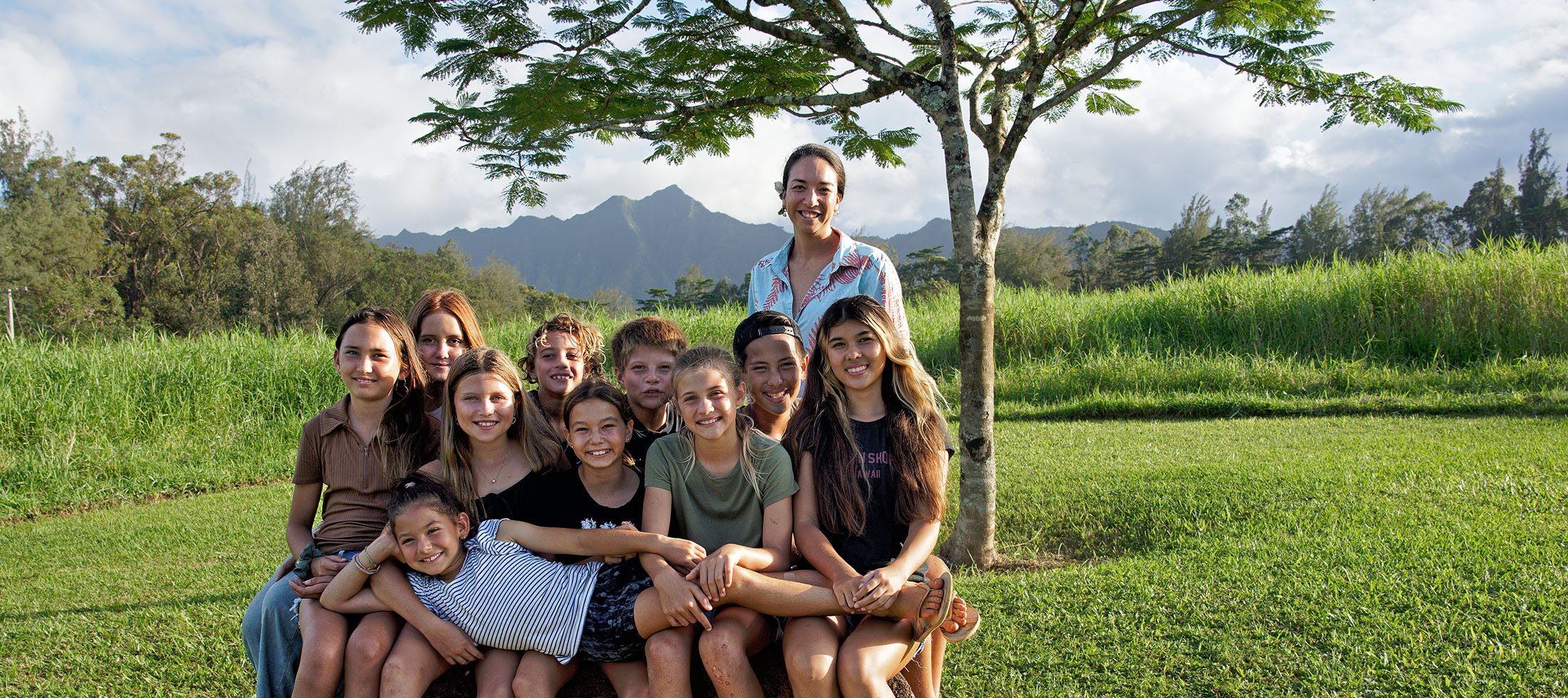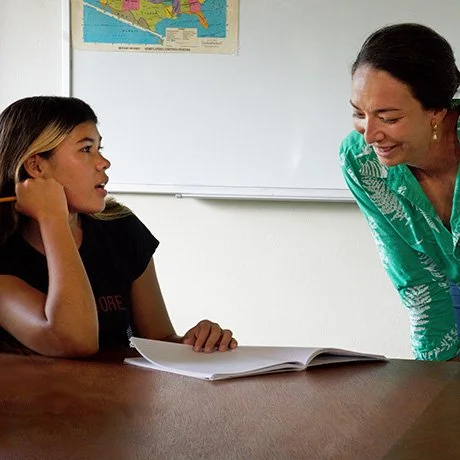Advisories

Nurturing each students’ social and emotional learning, and promoting our value of “Aloha Kanaka.”
Cohorts
Each student at Namahana School is part of a small advisory group of 15-20 students that progress as a cohort with the same faculty advisor throughout the two years of middle school and four years of high school (outside their advisory role, these faculty also teach core subject areas). This ensures that each student is always accompanied and mentored by at least one adult who is committed to their success and helps guide their personal learning.
The advisory structure is a central organizational and relational plan of Namahana School, and helps to ensure the academic and personal success of all students. Meeting twice daily, it is the heart and soul of our school and can be described as the “home” or “second family” of our students.
Personal Learning Plans
An advisor serves as a teaching catalyst, finding educational resources for students, ensuring that their personalized learning plans target key academic and personal goals, working with community mentors to ensure the rigor of internships, and actively involving parents in their children’s education. To do this, the advisor must build a strong relationship with each student and her/his family.
The advisor is a coach, mentor, teacher, manager, facilitator, and often – friend. Advisors guide students in learning how to manage their time, plan their work, find internships, and complete projects. Advisors coach students in seeking and building authentic learning experiences on and off campus.
Close, Personal Relationships
Finally, advisors shape the advisory cohort into a hui (crew, team) where students as peers learn to be part of a group and work together. Students stay with an advisor and a group of fellow classmates for two years in middle school and four years in high school, building close personal relationships that last a lifetime.
As one of the central elements of schools in the Big Picture Learning network, advisories have proven to be one of the most effective vehicles for creating adult mentorship and peer support, nurturing children’s social and emotional learning, and promoting our value of “Aloha Kanaka.”



